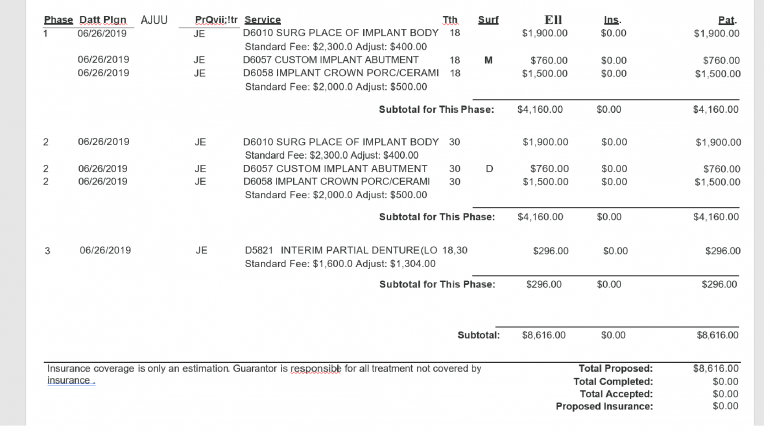
Dental Code D0605: Antibody testing for a public health related pathogen, including coronavirus
Dental Code D0605 represents the provision of antibody testing for public health-related pathogens, including coronavirus. This code allows dental practices to cover the expenses associated with conducting antibody tests.
What does Dental Code D0605 mean?
Dental Code D0605 specifically refers to the antibody testing procedure for public health-related pathogens, with a particular emphasis on coronavirus. Antibodies are proteins produced by the immune system in response to an infection or exposure to a pathogen. This test aims to detect the presence of specific antibodies in order to determine whether an individual has been exposed to a particular pathogen, such as the coronavirus.
Patient Evaluation and Pre-Test Counseling
Before conducting the antibody test, the dental professional will evaluate the patient's medical history and perform a physical examination. This assessment helps identify any potential contraindications or factors that may affect the accuracy of the test results. The dentist or dental staff will also provide pre-test counseling, explaining the purpose and significance of the antibody test, as well as discussing any relevant risks or limitations.
During the evaluation, the dental professional will inquire about the patient's symptoms, recent travel history, and potential exposure to the coronavirus. They will also assess any underlying health conditions that may impact the immune response or the interpretation of the test results. This comprehensive evaluation ensures that the antibody test is administered appropriately and that the results are accurately interpreted.
Obtaining a Blood Sample
To perform the antibody test, a small blood sample is required. The dental professional will take necessary precautions to ensure a safe and hygienic blood collection process. They will clean the area where the blood will be drawn and use a sterile needle to extract a small amount of blood from a vein, usually in the arm.
The blood collection process is typically quick and relatively painless. After the needle is inserted, a small amount of blood is drawn into a sterile tube or vial. Once the blood sample is obtained, it is properly labeled and prepared for laboratory testing.
Laboratory Testing
Once the blood sample is collected, it is sent to a laboratory for analysis. In the laboratory, the sample undergoes a series of tests to detect the presence of specific antibodies related to the targeted pathogen, such as the coronavirus. The laboratory employs advanced diagnostic techniques, such as enzyme-linked immunosorbent assay (ELISA) or chemiluminescent immunoassay (CLIA), to accurately identify and measure the antibodies.
In ELISA, the blood sample is added to a plate containing specific viral proteins or antigens. If antibodies against the targeted pathogen are present in the sample, they will bind to the viral proteins. This binding is detected through the addition of enzymes, which produce a color change or a fluorescent signal. The intensity of the color or the signal indicates the presence and quantity of antibodies.
Similarly, CLIA also relies on the interaction between antibodies and viral antigens. However, instead of using color changes, this technique uses chemiluminescent molecules that emit light when antibodies bind to the viral antigens. The light emission is measured by a specialized instrument, and the intensity of the signal corresponds to the presence and concentration of antibodies.
Test Results and Interpretation
After the laboratory testing is complete, the results are obtained and interpreted by a qualified healthcare professional. The dental practitioner or a designated healthcare provider reviews the test results and explains their significance to the patient. They will discuss the presence or absence of antibodies related to the specific pathogen and provide appropriate guidance based on the outcome.
A positive result indicates the presence of antibodies, suggesting that the individual has been exposed to the targeted pathogen, such as the coronavirus, in the past. It is important to note that the presence of antibodies does not necessarily indicate current infection or immunity. It signifies a previous immune response to the pathogen. On the other hand, a negative result suggests no detectable antibodies at the time of testing.
The healthcare professional will provide further guidance based on the test results. They may recommend additional diagnostic tests, such as a polymerase chain reaction (PCR) test, to confirm the current infection status or assess the need for vaccination. They will also offer advice on preventive measures, such as wearing masks, practicing good hand hygiene, and following public health guidelines.
Summary of Dental Code D0605
Dental Code D0605 covers the cost of antibody testing for public health-related pathogens, including coronavirus. This procedure involves a thorough patient evaluation, pre-test counseling, blood sample collection, laboratory testing, and result interpretation. Antibody testing helps determine whether an individual has been exposed to a specific pathogen and provides valuable information for public health monitoring and management strategies.
It is important to note that antibody testing is just one component of a comprehensive approach to managing public health-related pathogens. It is always recommended to consult with a qualified dental or healthcare professional for personalized advice and guidance regarding Dental Code D0605 or any other medical procedures.
Elevate your dental health without breaking the bank! Dr. BestPrice empowers you to effortlessly compare dental care expenses, ensuring your smile stays radiant and your budget stays intact.
